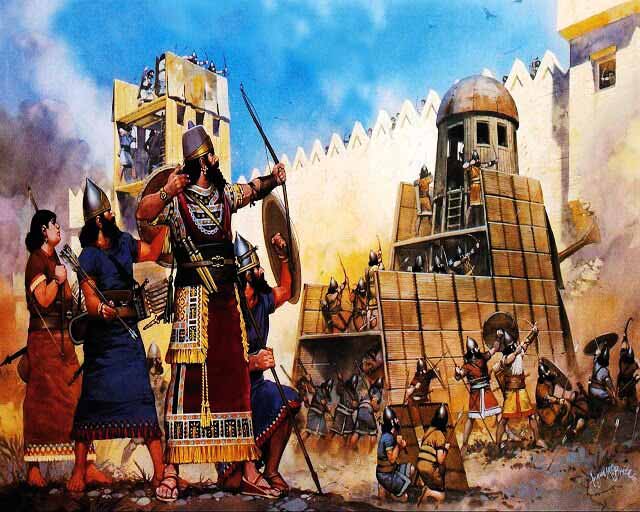By Pr Isaiah White
Some people in this world do not believe in Judgment Day, especially those who do not believe in God.
However, according to what one would call common reality, we would say that whatever begins will surely end.
If this world has a beginning, then it will end. There are too many scriptures that not only confirm the end of the world, but also emphasize Judgment Day.
Prophecy on destruction
We will begin with how prophet Nahum warned the great Ninevites.
In Nahum, chapters 1 and 2, we see a description of the destruction of the apostate Nineveh:
– Nineveh’s walls would be destroyed by a flood (2:6, 8, 1:8). In fact, the walls of the city were breached by the rising flow of the two rivers near Nineveh.
– Its buildings would burn with fire (2:13, 1:10). Archaeology shows the charred remains of buildings.
– Nineveh’s inhabitants would fail while trying to escape (2:8). Historians confirm the death of all who were living within the city.

– The attackers would be dressed in red (2:3). The Medes wore scarlet uniforms.
– Plunder and pillage would follow (2:9–10). Every item of value was removed from the city and carried away by the conquerors.
– Prior to the attack, Nineveh would be drunk (1:10, 3:11). History records that they were intoxicated at the time of the final, critical attack.
– The destruction of Nineveh would be final (1:9, 14). Nineveh has never been rebuilt, even to this day. The prophecy of the fall of Nineveh walls is symbolic of the security of the great Assyria.
The modern world, like Assyria, has built strong defensive and offensive systems like the walls of Nineveh, and still, the Word of God reminds all of us that all those defensive systems will fall and fail their builders.
While this world prides itself on infrastructure, prophecy reminds all of us that all will be reduced to sand and ashes.
According to prophet Nahum, the healthy-looking inhabitants of Assyria would fail, and they failed, as the Oracle of God stressed.
The same applies to our times; all these healthy-looking people will not escape judgment.
No one is too fit to survive the wrath of God. All these healthy inhabitants of the world are drunk with the doctrines of unbelief.
They are drunk with hedonism, power and all sorts of injustice. They are obsessed with sin.
The judgment will strike within this social and spiritual drunkenness, and that judgment will be final.
This is part of the last call to this world: whoever is reading this and has not believed Jesus Christ as their Lord and Saviour, this is the time.
This Christian message is easy to ignore, just like the majority of Assyrians in Nineveh did to their destruction, but if this world was created by God, it shall surely end and there will be a judgment, and the Creator will be the judge.
Judgment in Scriptures
According to the Old Testament, God is the righteous judge of all the earth (Genesis 18:25, 1 Samuel 2:10, 1 Chronicles 16:33) who holds both individuals and nations accountable for their actions (Deuteronomy 32:41, Psalm 110:6, Job 19:29, Ecclesiastes 3:17; 11:9, Ezekiel 33:20; Jeremiah 25:31, Joel 3:2).

In the Bible, Judgment Day is known as the Day of the Lord.
To a typical Jew, however, the day of the Lord means justice. Justice is about punishment and reward.
Reward the obedient and those who, by belief and tribe, belong to God, and punish the disobedient and those who, by belief and tribe, do not belong to the Lord.
When the Jews were under a foreign political power, they anticipated liberation through the Lord’s Day.
When the Jews suffered physical problems or any loss, they prayed for the Lord’s Day that would restore the land.
The Lord’s Day, however, alluded to an eschatological event where God would effect an eternal judgment on all the universe (Psalm 1:5, Ecclesiastes 3:17; 11:9; 12:14).
The scene in Daniel 7 where the Ancient of Days presides over a heavenly court where books are opened, the terrifying fourth beast is destroyed in blazing fire, and the eternal kingdom is given to God’s holy people is the closest we get to a final assize in the Old Testament.
Those sleeping in the dust of the earth awaken, some to glory and everlasting life, others to shame and everlasting contempt, according to Daniel 12.
In any case, there is little doubt that both of these texts influence the portrayal of the ultimate day of the Lord and the final judgment in the New Testament.





















